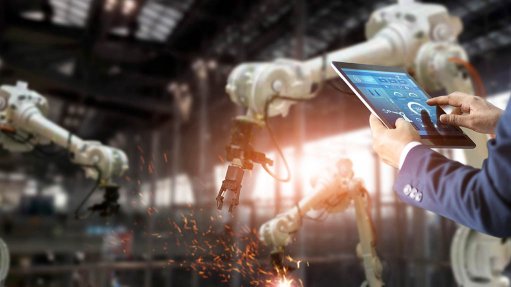
NO CHALLENGE IS TOO BIG Industry 4.0 is here to make manufacturing more efficient and also improve daily lives
The adoption and impact of Industry 4.0 in South Africa is still relatively muted, compared to the rest of the world, with its biggest challenges being education, connectivity, and electricity and accessibility, says automation and machine building solutions provider S4 Integration marketing manager Gideon Smith.
“Progress in these aspects will drive the broader adoption of Industry 4.0, which will offer great opportunities for South African manufacturers to lead the way and create new business models.”
He points out that, for this progress to happen, the communications experts, technological role-players and government are required to lay the groundwork in terms of ensuring that the country is prepared to become world industry leaders in a new era.
“Industry 4.0 is here to not only make manufacturing more efficient but also improve our daily lives. Everyone involved needs to educate employees and expose the industry to it as much as we can,” Smith notes.
Further, the adoption of Industry 4.0 has varied from the tepid acknowledgement of Industry 4.0 technologies to fully operational, extensively automated smart factories, seen most predominantly in the innovation-driven industries such as automotive.
In manufacturing, there is a general reluctance from government and industry to invest in new technologies for a broader adoption. The current economic environment is forcing South African manufacturers to save costs first and spend less on innovation.
The competitive advantage of manufacturing companies implementing Industry 4.0 will allow for new ways of marketing products and transforming the way in which organisations work.
“Manufacturers need to embrace a new collaborative culture with suppliers, business partners and customers, innovate beyond product levels and create opportunities for new disruptive business models on the edges of their businesses.”
Smith highlights that a big concern surrounding Industry 4.0 is its association with job losses.
“Some may believe that technology is taking away manufacturing jobs. However, the paradox is that unemployment figures in the US are telling a different story.”
He advocates that Industry 4.0 creates a new era where many new roles are created, although the workforce needs to be upskilled and have a deeper set of skills and competencies to offer prospective employers in the industry.
“It is not a revolution that can happen in isolation, but rather a revolution that needs participation. This participation will actively help shape the outlook of Industry 4.0 in corporates, government, societies and institutions,” Smith concludes.